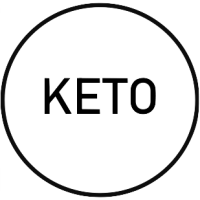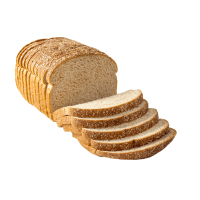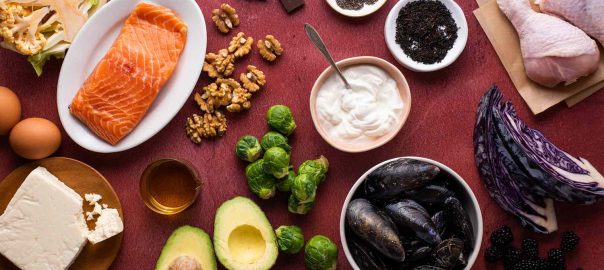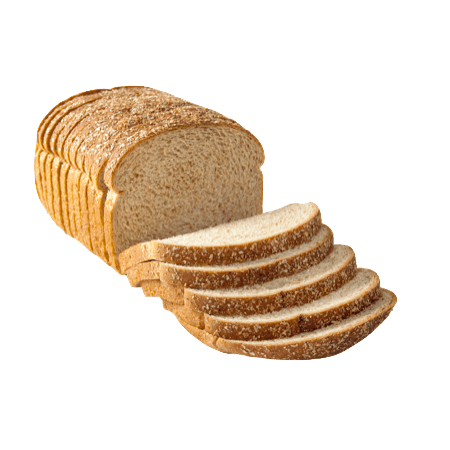Managing Hormonal Health
A Women’s Guide to Low Carb Eating
Women’s bodies are hormonally dynamic. From puberty through menopause, estrogen, progesterone, insulin, cortisol, thyroid hormones, and more, interact in a delicate balance. Low carb diets, ranging from moderate carbohydrate restriction to full keto diets, affect each of these systems uniquely. Below, we’ll explore the science and offer practice advice for menstrual health, fertility, PCOS, perimenopause, and menopause.
Note: This article is only meant to serve as a guide, and you should always consult with your primary care doctor, or other health professionals, for any specific advice or instruction.
Understanding Low Carb Diets and Hormones
What is Considered a Low Carb Diet?
- Moderate low carb: ~100-150g per day
- Low carb: ~50g per day
- Very low carb (ketogenic): <20-30g per day
Women’s hormonal systems are sensitive to energy and carbohydrate availability. When carbs fall too low, or too fast, hormonal imbalances can occur.
Stress and Cortisol
Very low carb diets can trigger what is called adaptive stress. This increases cortisol, the “stress” hormone. Elevated cortisol can disrupt reproductive hormones and estrogen levels. One study found that women on strict low carb regimens had notably high cortisol.
Learn more about this study here.
Thyroid Function
Low carb intake can reduce T3 (active thyroid hormone), leading to fatigue, slowed metabolism, and potential menstrual disruption.
Leptin and Hunger
Low carb intake and caloric intake can lower leptin, your satiety hormone, leading to increased appetite and possible amenorrhea (period loss).
The bottom line is that carbohydrates aren’t just energy. They play a critical role in sustaining optimal hormone function. Balance and personalization are key. Low carb diets are not one size fits all, and it’s important to adjust to your new diet slowly and listen to your body.
Menstrual Cycle and Low Carb Eating
- Ovulatory Function and Menstrual Regularity
Cutting your carbs too low can disrupt GnRH (brain hormone) signaling, which lowers LH/FSH and estrogen. This can result in irregular cycles or amenorrhea (loss of periods). For active women or those with an already low body weight, these effects are more common.
What the Research Says
Strict ketogenic diets have been linked to missing or irregular menstrual cycles in adolescents and adults. Track your cycle and listen to your body. Missed or very long/short cycles may indicate an energy deficiency.
- PMS and Carb Cravings
On the flip side, reducing high-glycemic carbs can help stabilize blood sugar and lessen PMS symptoms in some women. It’s about removing the “sugar rollercoaster” and not cutting all carbs out of your diet.
Practical Tips for Menstrual Phase Nutrition
- Follicular phase (days 1-14): Account for PMS cravings by incorporating low-glycemic carbs (e.g. berries, sweet potato, oats) with protein and healthy fats.
- Ovulation window (usually 5-6 days a month): Keep carbs at moderate levels (~75-100g per day) to support follicle development.
- Luteal phase (begins after your ovulation window until your menstrual period starts): Add extra carbs (~100-120g per day) to support progesterone production and stabilize mood/energy.
Seed-cycling is recommended by some. This rule is flax and pumpkin seeds in the early parts of your cycle and sesame and sunflower during your luteal phase. The scientific backing of it is limited, but the nutrients found in these seeds, such as lignans, omega-3s, selenium, and vitamin E, may help support estrogen and progesterone balance.
Fertility and PCOS (Polycystic Ovary Syndrome)
- PCOS and Insulin Resistance
PCOS, affecting 8-13% of reproductive-aged women, is driven largely by insulin resistance and androgen excess. Carb reduction can help lower insulin, which can help empower ovulation and fertility.
A 45+ day ketogenic intervention in PCOS showed improved hormone profiles, such as lower LH/FSH ratio, reduced free testosterone, increased SHBG, and restored ovulation.
Learn more about keto diets for PCOS.
Moderation Matters
A full keto diet isn’t necessarily required to see positive outcomes. Moderate low carb diets can improve insulin while being easier to adhere to long-term.
- Preconception and Pregnancy
During pregnancy, carbohydrate needs increase to support development and hormone production. Very low carb diets may restrict the glucose necessary for the placenta and growing baby. Plus, low leptin associated with carb restrictions may impair reproduction.
It is recommended to increase complex carbs during conception and pregnancy, such as whole grains, legumes, fruits, and starchy vegetables, as tolerated and in consultation with your care provider.
- Perimenopause and Menopause on a Low Carb Diet
Weight and Metabolic Health
Perimenopause and menopause bring declining estrogen, slowed metabolism, and increased central fat. Low carb diets can curb weight gain better than low fat diets. One large study of women aged 49-81 showed significantly less weight gain on reduced carb diets.
Insulin Sensitivity
Insulin resistance often worsens post-menopause. Low carb or keto diets can improve insulin sensitivity and reduce blood sugar spikes, offering protection from diabetes.
Menopause Symptoms
Keto may offer relief from weight gain and hunger, however, it’s impact on hot flashes or hormonal symptoms is less clear. Keto may also raise LDL cholesterol and risk negative impacts on bone density and cardiovascular health, which is especially concerning during menopause.
It’s important to remember that switching to a keto or low carb diet doesn’t automatically mean it’s a healthier diet. You still need to choose the right foods that fit within those diets. Certain junk foods will fit into any diet, so it’s important that you’re also incorporating plant-based protein, healthy fats, and lots of fruit and vegetables.
Alternatives and Dietary Flexibility
The Mediterranean diet is rich in vegetables, healthy fats, lean proteins, low glycemic carbs, and fibre to help support weight, bone, and metabolic health, whether or not you reach a state of ketosis. Other approaches like the Galveston Diet (anti-inflammatory, low glycemic, intermittent fasting) also align with hormone-balancing goals.
A flexible moderate low carb or Mediterranean-style low carb diet is often the safest for symptom management and nutrient needs.
Balancing Hormones and Low Carb Diets
In addition to carb cutting, consider these lifestyle changes:
- Adequate protein – Essential for peptide hormones (e.g. insulin, appetite-regulating hormones) and reproductive hormone synthesis.
- Regular exercise – Enhances insulin sensitivity, improves bone density, and improves hormone receptor function.
- Stress management – Chronic stress levels elevate your cortisol, which can disrupt menstruation and appetite metabolism. Try meditation, breathwork, yoga, or gentle movement.
- Gut health – Gut microbiome influences hormone metabolism. Include fibre, fermented foods, and prebiotics in your diet.
- Sleep – Poor sleep disrupts your cortisol, insulin, leptin, and ghrelin levels. Balancing your sleep supports these hormones.
- Micronutrients – Ensure sufficient iodine, selenium, zinc, magnesium, omega-3, and B-vitamins. These are all vital for hormone production.
Pitfalls to Watch Out For
- Amenorrhea/Hypothalamic amenorrhea (FHA) – Too little energy from carbs can lead to GnRH suppression, estrogen loss, infertility, and bone density issues.
- Thyroid suppression – Low carb/calorie diets can reduce T3, causing fatigue and slowed metabolism.
- Bone health – Keto-related weight loss may decrease bone density, especially in younger women or serious athletes.
- Cardiovascular risk – Keto can raise LDL. Menopausal women already face higher heart disease risks, so may sure you’re getting your fats and protein from healthy sources.
- Mental health – Extreme restrictions may trigger disordered eating or exacerbate anxiety. It is important to listen to your mind and your body. Any diet that feels too restrictive isn’t sustainable over long-term periods.
Learn more about how low carb diets affect your hormones.
How Low Carb Grocery Supports Your Hormonal Journey
Low Carb Grocery offers both convenience and nutritional excellence for women managing their hormone levels.
- Curated low carb staples.
- Quality sources of healthy fats, such as MCT oil and more.
- Simple meal ideas that contain real food and are nutrient rich.
- Education and resources tailored for hormone health.
- Flexible carb offerings for more than just those on a keto diet.
- Convenient delivery to help maintain consistent nutrition and reduce stress around meal prep.
Did we mention that we offer FREE shipping on all orders over $99 across Canada.
Sample Hormone-Friendly Low Carb Meal Plan
Here’s a sample menu plan that is easy, tasty, and hormone friendly.
| Phase | Breakfast | Lunch | Snack | Dinner |
| Follicular | Greek yogurt + berries + chia seeds + flax seeds | Grain bowl featuring quinoa, salmon, leafy greens, and olive oil | Handful of nuts and low carb veggies | Sweet potato + grilled chicken + steamed broccoli |
| Ovulatory | Omelette with veggies and avocado | Salad with lean protein, seeds, balsamic vinegar, and olive oil | Greek yogurt + berries + pumpkin seeds | Zucchini noodles + homemade pesto + shrimp |
| Luteal | Overnight oats with nut butter + bananas | Roast turkey + quinoa + spinach salad | Hummus + veggie sticks + sunflower seeds | Salmon + brown rice + roasted root veggies + tahini |
| Menopause | Smoothie: protein, berries, MCT oil | Mediterranean bowl with brown rice + chickpeas + feta + olives | Low carb trail mix + herbal tea | Olive oil roasted fish + lentils + mixed veggies |
This balanced approach keeps carbs at ~75-120g per day, which is enough to support hormone health while still low enough to aid weight and blood sugar control.
Learn more about the Hormone Diet.
Monitoring and When to Seek Professional Guidance
Track these markers:
- Cycle length and regularity
- Energic performance and mood
- Sleep quality
- Cravings and appetite
- Menopausal symptoms (hot flashes, night sweats, bone pain)
- Lab metrics (fasting insulin/glucose, lipid panel, thyroid (TSH, T3, T4), vitamin D, magnesium, selenium, omega-3 index.)
Scale adjustments:
- Irregular cycles or loss of menstruation – Increase carbs (to around 100g/day) and overall calories.
- High LDL or low bone density – Switch to more Mediterranean-style fats, include more legumes and whole grains.
Consult a functional doctor, endocrinologist, or a registered dietician, especially if on hormone therapy or managing a chronic condition.
Key Takeaways
- Women require a fine-tuned carb balance – enough to support hormone production without triggering metabolic issues.
- Over-restriction may lead to cycle disruption, low thyroid function, bone loss, or stress hormone imbalance.
- Very low carb diets can help in certain cases – PCOS, insulin resistance, menopausal weight, but it isn’t a one-size-fits-all solution.
- A phase-based approach, adjusting carb intake based on menstrual stage or life stage, is ideal.
- Lifestyle factors, like stress, sleep, movement, protein, gut health, and mental wellbeing, are equally vital.
- Moderate, sustainable intake of whole, fibre rich, nutrient dense carbs supports both metabolic and reproductive hormone balance.
Low Carb Grocery offers an affordable, convenient platform to support your low-carb or hormone-focused diet, through nourishing staples, thoughtful recipes, and flexible options for all life stages.
Listen to Your Body’s Needs
A low carb lifestyle can be a potent tool in a women’s health arsenal, from managing PCOS to navigating menopause. However, the key lies in personalization. By tuning carb intake to your body’s cues and changing needs across menstrual cycles and life stages, you can harness low carb benefits without compromising hormonal harmony.
Let Low Carb Grocery be your partner in this health journey. We offer curated, nourishing foods and recipes tailored for hormonal support. As always, listen to your body and involve medical professionals in the journey to ensure your path is as safe as it is empowering.
More Low Carb Lifestyle Articles
Top Snack Foods
Discover the ultimate guide to keto and low carb snacking! We’ve compiled our favourite snacks and sweets that are both delicious and diet friendly! From chocolatey treats to savoury bites, we’ve got something for everyone!
Zero Carb Foods
Maintaining a low carb diet can be challenging, but with the right foods, it doesn’t have to be. This article is packed with product recommendations to help you stay on course. Discover how to fully embrace a keto or low carb diet with delicious meals that satisfy every craving.
Is Going Low Carb Healthy?
Interested in making the switch to a low carb diet but worried about adverse health effects? Learn more about the role that carbs play in your diet and how they affect your overall health and fitness goals to determine if a low carb diet is the right choice for you.
30 Low Carb Foods
Looking for delicious and satisfying meals that fit into your low carb lifestyle? Explore our list of 30 healthy low carb foods, including pantry staples and specialty products.
Getting Started with Keto
The keto diet, as it is commonly known, has surged in popularity due to the dramatic results that people have experienced. However, there remains some skepticism about how it works from those who are new to high-fat and high-protein eating. Learn more about this diet here.





















